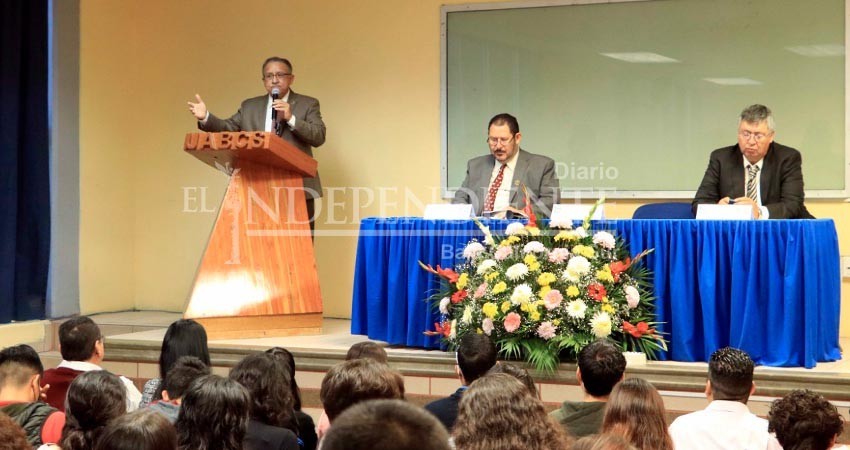UABCS is holding the 9th edition of its International Animal Science Meeting for Arid and Coastal Zones

La Paz, Baja California Sur. – With the participation of researchers, professionals and producers from fields related to agricultural sciences, IX. The International Meeting of Zoology in Arid and Coastal Zones, a space integrating from academic conferences, symposiums and exhibitions to cultural and artistic dynamics.
The event takes place at the Autonomous University of Baja California Sur (UABCS) on November 23, 24 and 25, and its inauguration is attended by the President of the House of Studies of Southern California, Dr. Dante Salgado Gonzalez, who in the first instance, expressed his appreciation to the teachers and students of the Academic Department of Animal Sciences and Habitat Conservation (DACACH) to coordinate this academic integration and interesting discussion activity.
With social exposure to modern processes and technologies that favor primary sector productivity, particularly in arid and coastal conditions, he said, UABCS upholds its commitment to addressing the various problems faced by communities.
He emphasized in particular the role played by people who are dedicated to producing food of animal or agricultural origin, as their work lies in the hope of living on a planet free of famine, but also in eating healthy food, and reducing disease through rigorous safety processes.
He referred to the fact that only last week it was known that the population had reached 8 billion, and this represents a real challenge, because everyone is asking for food, services and other amenities that allow them to live in luxury and quality of life.
“This is where university students should contribute our skills to solidarity, especially since we are a very fortunate group in the context of the country to have access to professional education. I invite you to take advantage of these benefits. We know that they have gained a recognized place, but at the same time it holds A great responsibility “, stressed Dr. Dante Salgado.
Over its three days, the meeting included 10 presentations related to animal health and welfare issues, 9 presentations related to drought and animal production and 8 presentations related to safety in technical and innovative products.
Likewise, 15 live conferences and 5 virtual major conferences from other parts of the Republic and from countries such as Spain, Cuba and Peru. There are also 4 workshops for students and 4 geared specifically to local producers and their needs.
In addition, within this framework, the seventh meeting of alumni of professions related to DACACH will be held, so that they can dialogue with students about their academic lives and share their professional experiences as a catalyst.

“Award-winning zombie scholar. Music practitioner. Food expert. Troublemaker.”


/cloudfront-eu-central-1.images.arcpublishing.com/prisa/AHVYMMDSTZDTDBFNZ3LMFUOKNE.jpg)








